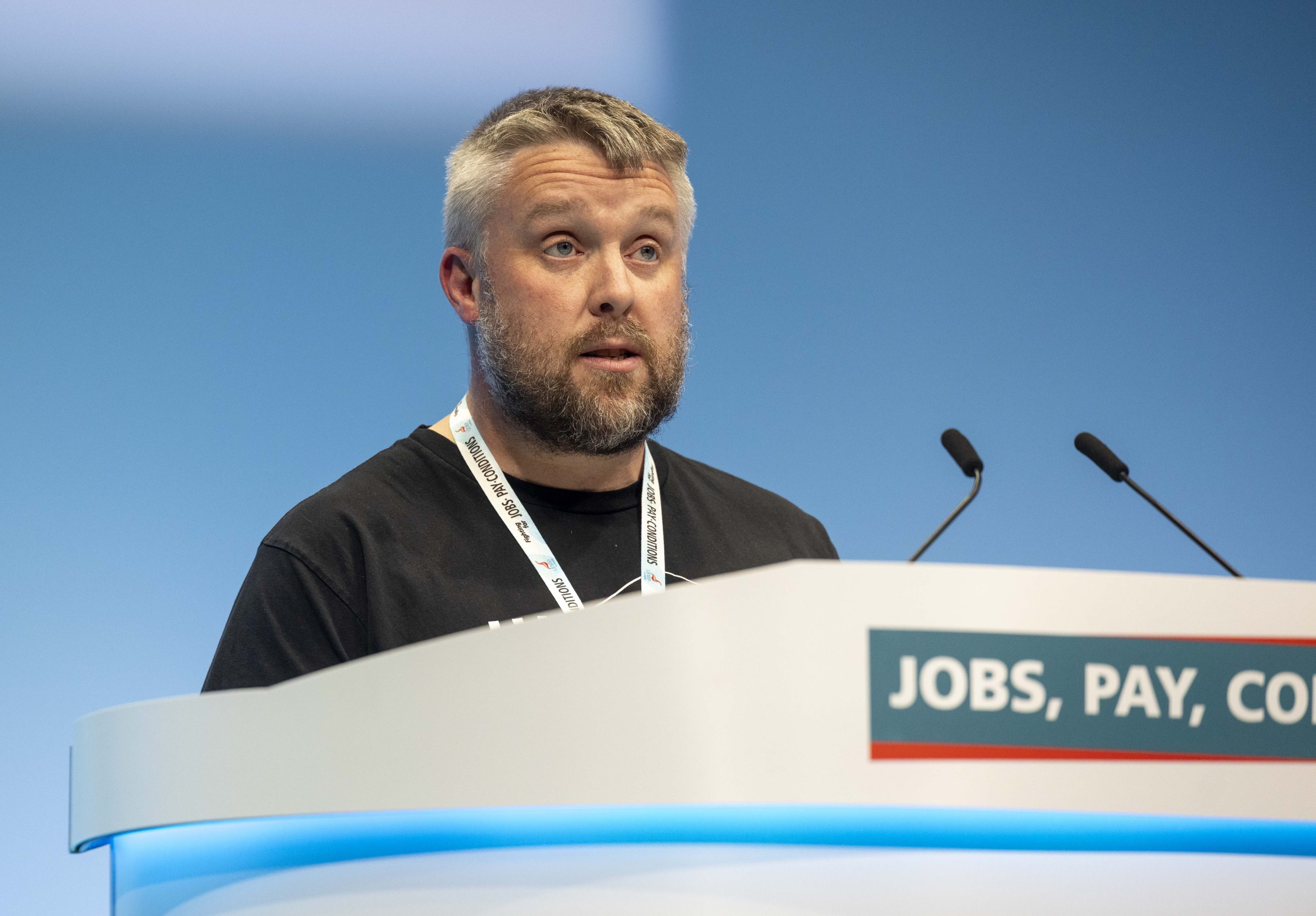Just transition for steel and car industries
Unite delegates call on gov’t to protect UK manufacturing base
Reading time: 5 min
A just transition and investment was at the heart of a debate on the future of the automotive and steel industries on Wednesday (July 9).
Unite delegate Vincent Harrod, who works in the car industry, warned of the risk to hundreds of thousands of jobs in the industry and wider supply chain – and the communities sustained by them – in the rush to electrification.
He called the current transition “rushed and not planned”.
“The 2030 ban of internal combustion vehicles may sound like progress but without the infrastructure, without the investment and without the jobs to replace what we will lose, it is not a transition – it is a cliff edge,” Vincent said.
He pointed to the EU’s deadline of 2035 – as opposed to the UK’s 2030 – which gives the industry five more years to prepare: to build more gigafactories, to reskill workers, to secure supply chains.
“Five more years to do it right,” Vincent noted.
He emphasised that auto workers are not asking to delay climate action; they were asking for a just transition.
“If we do not fight for this now, we will see jobs offshored and more communities left behind,” Vincent went on to say, adding that a truly just transition requires “a scalpel, not a hammer”.
Vincent called for the UK to match the EU’s ban deadline of 2035, for the zero emissions vehicle (ZEV) mandate to likewise be in line with the EU’s ZEV, a VAT cut on UK-made electric vehicles, and investment in charging infrastructure, among other measures.
Meanwhile, Unite delegate and Tata Steel Port Talbot convenor Ian Williams moved a motion on the steel industry, which likewise outlined measures to secure the industry’s future.

Ian said it was vital that the UK becomes the “green steel capital of Europe” and vital that “we lead the way”.
“It is an unquestionable fact that with proper investment and support, the UK can have a sustainable, profitable steel industry, securing good, well-paid jobs,” he noted.
He welcomed measures taken by the Labour government – such as the green steel fund and investment in securing blast furnaces in Scunthorpe – both of which were secured thanks to Unite lobbying.
But Ian added that much more had to be done – including developing a fit for purpose steel strategy which underpins and supports the UK’s manufacturing base. He emphasised the importance of price reductions for energy-intensive businesses to create a level playing field with industries in Europe.
He also called on the government to overhaul its procurement laws, so that all major infrastructure projects in the UK “use steel melted and poured in the UK”.
“We need a joined-up approach, ensuring supply and demand are met,” Ian concluded. “We must continue to fully support our members in action to defend our jobs, our communities and our industry, ensuring a just transition that works for our members.”
Unite delegates intervening in the debate all called for more action to support the UK’s manufacturing base.
Unite delegate Anthony Walsh said all British car manufacturers – and their workers – are fully behind the push for emissions-free transport.
“We all want that. All we are asking for is the time to achieve that,” he said, as he called on conference to lobby the government for a 2035 ban on internal combustion engines.
Meanwhile, Unite delegate Zahrah Ameleh gave a moving tribute to her father, a steel worker, as she highlighted the importance of the steel industry.
“[My dad] was a Scunthorpe British Steel worker for 30 years and raised eight children during that career,” she said to applause. “My mum was a stay-at-home mum with plenty to do. My dad owned his own home, we never went hungry and he loved his job. The government must support steelmaking in this country for generations to come.”
By Hajera Blagg
Photos by Mark Thomas



